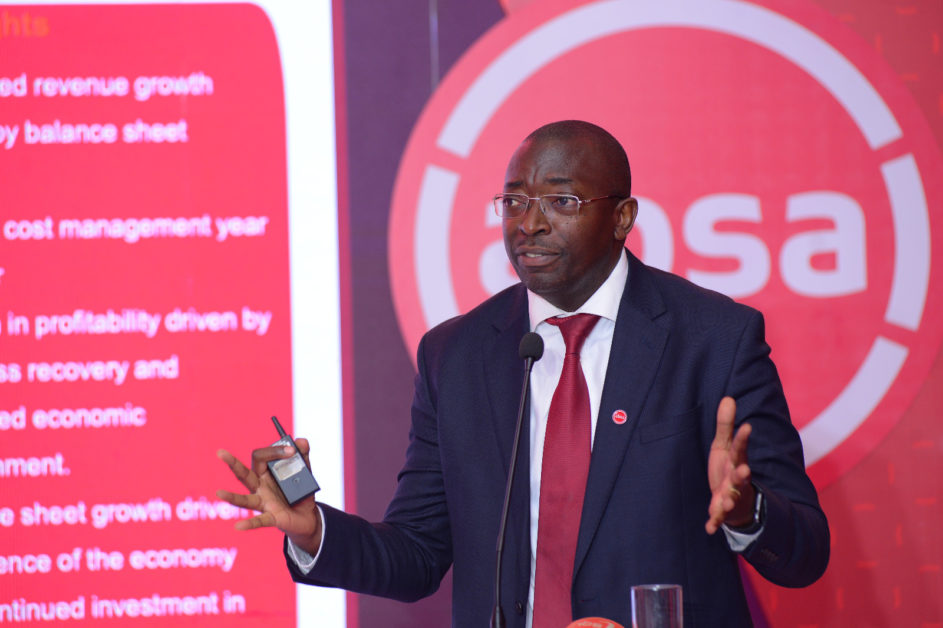SMEs are the engine of the economy, yet they were probably some of the worst hit by the pandemic. How is Absa positioned to support SME full recovery and growth?
At Absa, we believe in the potential and contribution that SME businesses can make to the socioeconomic development of the country.
Through programs such as the Absa SME Academy and Enterprise Supplier Development, we have efforts in place to support the growth and survival of SMEs. This we do through training to professionalize both new and existing SMEs in the country.
We work with these businesses to apply the knowledge and lessons learned to transform their enterprises from small businesses to major players in the market. We developed these programs because we realised that SMEs need capacity enhancement to ensure business sustainability and help them outlive economic downturns, enhance partnerships for business growth, ease access to credit and improve their bankability through financial literacy. We have also developed tailor-made financing solutions that meet the needs of SMEs and can be evidenced through unsecured lending, and our commercial asset finance offering, to mention but a few.
You will recall that in mid-2022, to enable businesses, especially SMEs in the post-Covid-19 recovery we launched our preferential financing support SMEs with up to UGX100 million in unsecured loans and up to UGX500 million in unsecured bid bonds.
The cost of finance still remains a challenge to the market and continues to affect credit demand. How can banks make interest rates more friendly to increase credit uptake?
Interest rates are not static and vary due to factors such as currency, loan tenure, and collateral, to mention a few. All these are taken into consideration to determine, on a case-by-case basis, the interest rate given to a borrower.
Importantly, interest rates across the industry are also affected by the costs of operation. Currently, the cost of doing business remains high. On an industry basis, the cost-to-income ratio currently stands above 60% which has an impact on interest rates, over and above the Central Bank rate.
Is Absa on track to meet the new capital requirements issued by the Central Bank end of last year and how do you anticipate these to impact the business performance in 2023?
We acknowledge the key role that the Central Bank is playing towards ensuring banking safety and soundness and limiting banks’ exposures to credit, market, and liquidity risks and to overall solvency risk.
The Statutory instrument issued on 16 November 2022 required banks to increase their capital buffers from UGX25 billion to at least UGX120 billion by the 31st of December 2022. Absa Bank Uganda was already meeting the deadline by the time the instrument was established with capital levels of UGX124 billion. We are on track to meet the requirement of UGX150 billion by 30 June 2024. We are financially sound and very well capitalised, meeting all requirements stipulated by the Central Bank.

As one of Uganda’s largest banks, what has been Absa’s contribution to the Oil and Gas sector?
The oil and gas sector is key to this economy and one which we have identified to support sustained economic growth in the medium to long term. Our support to the sector varies and has included enterprise development to strengthen the ability of Ugandan businesses to take up opportunities in the sector and additionally financing our customers who are players in the sector.
The Banking industry was a target or mark for fraudsters last year – what was Absa exposure and how confident should customers be about the safety of their money?
Banking has been revolutionised by digital technology and presents an opportunity to offer enhanced customer experience and greater convenience. However, on the flip side, the digital revolution that is transforming banking is also enabling new forms of banking fraud.
We continue to assess and put in place the necessary measures in place to manage this risk. These include ensuring that IT security precautions are in place, applying appropriate internal controls rigorously, and telling our customers how to bank safely online, choosing strong passwords and avoiding being duped.
We continue to invest heavily in infrastructure security to safeguard our customers’ and banking systems and continually reduce our vulnerability to fraud. We are a banking institution that is committed to safeguarding our customers’ deposits.
We also continue to work closely with other key players including the regulator to ensure enhanced safety of our banking systems.
Do you anticipate the current banking crisis in the West to impact banks in Africa and Uganda in particular? Any key learnings from these collapses?
According to the Bank of Uganda Monetary Policy Report released in April, “Uganda’s banking system is well capitalised, highly liquid, and well-placed to absorb emerging interest rate shocks”, despite the recent banking turbulence being experienced in the US and Europe.
For now, we believe with the Bank of Uganda increasing capital requirements, robust risk management and interest rate management, Ugandan commercial banks remain resilient.
 Northern Corridor States to jointly mobilise funds for fast-tracking Standard Guage Railway Project
Northern Corridor States to jointly mobilise funds for fast-tracking Standard Guage Railway Project